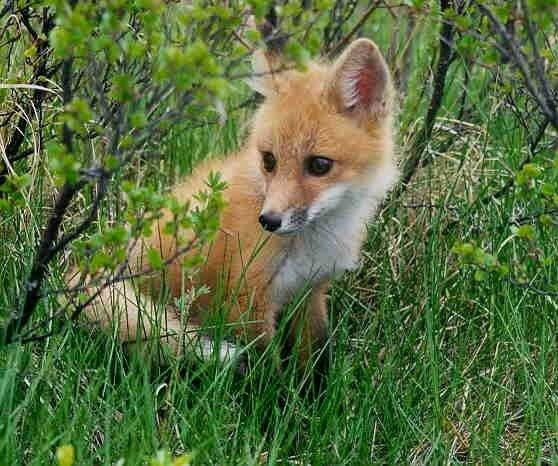It’s springtime, which means two things: kids playing outside more, and lots of young wildlife – fawns, bunnies, ducklings and pups – around the Cochrane area.
Cautious parents made be concerned about potential encounters between children and critters, but Clio Smeeton, president of the Cochrane Ecological Institute, said there’s nothing to fear.
Smeeton recently received a call from a concerned parent who had seen foxes around her property while her kids played outside (the woman claimed the animals had been eating cats and terrorizing the neighbourhood). But the parent’s fears were unfounded, Smeeton said.
“Foxes are beneficial animals; they kill rodents and people should be happy to have them.” Smeeton noted that foxes generally don’t hunt cats due to cats being larger on average. As for kids, she said foxes are even more wary of humans.
“Children can play outside; nothing’s going to hurt them.”
The Ottawa Humane Society’s website describes foxes as “not dangerous to humans, except when rabid, and fox rabies are rare in most places. Alberta Fish & Wildlife states on its website that rabies hasn’t been found in a fox in Alberta since the 1950s.
However, on Alberta Fish and Wildlife’s ‘Human-Wildlife Conflict’ page, if an animal seems to be acting strangely, it’s best to avoid any contact.
Often during encounters, children may find baby animals that appear to be unattended. Smeeton said parents could contact a number of conservation organizations that offer advice about dealing with infant critters, including the institute.
Specifically, Smeeton outlined a few recommendations:
– Crows and magpies are generally caring of young, so if a baby is found alone, moving it from high traffic areas, such as bike paths, is sufficient.
– For ducklings, do not to attempt capturing them unless it’s been determined after 24 hours that the mother is not coming back.
– Fawns are best left alone for 24 hours; if no parent appears, then contact conservation.
– Leverets or baby hares are often found by children and taken home. The best course of action is to leave them alone, unless they’re in a dangerous or unfit area.
People can contact Cochrane’s Arrowhead Clinic (403-932-2370), Cochrane Ecological Institute (403-932-5632), Calgary Wildlife Rehabilitation Society (403-239-2488) or the Alberta Institute for Wildlife Conservation (403-946-2361) when encountering wildlife to seek further advice.
People can also contact the Cochrane branch of Fish & Wildlife at 403-932-2388.




